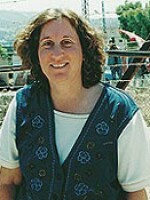RENEE MONTAGNE, host:
An Israeli military court today ordered the release of several parliamentarians in the Hamas government. Israel detained them in June after an Israeli soldier was kidnapped by Hamas militants. The Palestinians have insisted the arrests were illegal and have been demanding freedom for the Hamas officials for weeks.
NPR's Linda Gradstein joins us now from Jerusalem. And, Linda, who exactly are the Hamas parliamentarians and why did the court say that it was illegal to hold them?
LINDA GRADSTEIN: Well, they are 21 Hamas parliamentarians; three of them are cabinet ministers, the other 18 are members of the parliament. All arrested in the days and weeks following the capture of Israeli soldier Gilad Shalit.
The court said that Israel did not object to holding the elections, and Hamas participated in those elections, so it's illegal to hold them. However, I just spoke to somebody from the military prosecutor's office. They said they are appealing the court's decision, and that they believe that they are members of Hamas, which is a terrorist organization, and the men should not be released. The court has ordered that release held until Thursday.
However, the people that I've talked to said it probably will go through and the men will be freed. It's something that the Hamas government has been calling for for weeks. I actually spoke to one of these parliamentarians who was arrested and then released, and he said that even the interrogators in the jails said, I don't really have anything to ask you because you're not accused of any crime.
MONTAGNE: Well, all of this has to do with the capture of that Israeli corporal, as you said, Gilad Shalit. Though, is this a swap or they're strictly separate?
GRADSTEIN: Well, of course, you know, Israeli officials are not going to admit that it's a swap. However, there have been contacts going on for weeks, if not months now, headed by Egyptian officials.
In the past week or so we've had reports almost every day that the release of the soldier was imminent and that Israel would release hundreds of Palestinian prisoners. What held it all up was the timing, whether it would be simultaneous, what would happen first. So Israel certainly is not going to admit that it's part of a swap. But privately, officials do say that it's all part of a larger kind of thing in which the Hamas parliamentarians will be released and then, at some point, the Israeli soldier will be released and then Palestinian prisoners. So it's all part of a larger deal.
MONTAGNE: And sort this out for us. This case is separate from that of the two Israeli soldiers captured by Hezbollah up in Lebanon. Any word on those soldiers?
GRADSTEIN: There is no word on those soldiers. When U.S. Secretary-General Kofi Annan was in Israel and toured the region a few weeks ago, and he said he would do everything he could to get their release. He's appointed a mediator, but that really seems to be a separate issue. Israel says it has not received any information about their fate. However, they believe they are alive, and that's what U.N. Secretary-General Kofi Annan said recently as well.
MONTAGNE: There has also been an agreement struck between Hamas and Fatah just yesterday. Fatah, the Palestinian faction led by Mahmoud Abbas. The two say they'll form a coalition government. How is that likely to affect current tensions between the Palestinians and Israel?
GRADSTEIN: Well, first of all, the release of these Hamas parliamentarians, the expected release is connected because Hamas had said it will not form a new government without the release of these parliamentarians. It's not clear exactly what this new government would mean.
Israeli officials say that if Hamas meets its conditions, in other words recognizes Israel and renounces terrorism, then Israel could talk to this government. And Palestinians say that they hope this new government, which will be Hamas and Fatah together, will lead to breaking the international aid embargo which has led to a real financial crisis in the Palestinian Authority.
MONTAGNE: Thanks very much, Linda.
GRADSTEIN: Thank you.
MONTAGNE: NPR's Linda Gradstein speaking from Jerusalem. Transcript provided by NPR, Copyright NPR.







